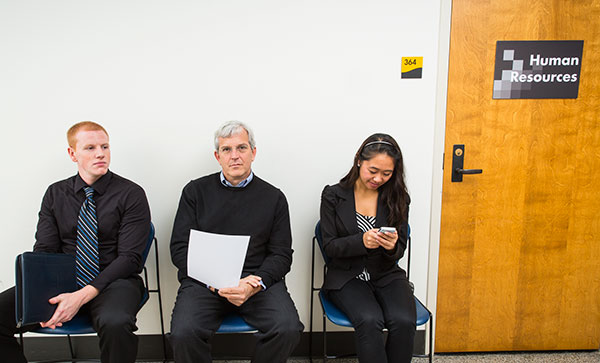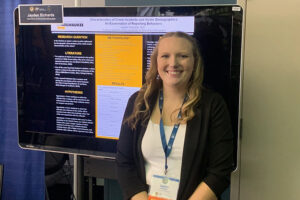The older you are, the harder it is to get a job if you’re unemployed. In 2013 the average length of unemployment for workers over the age of 50 was 53 weeks, compared to 10 weeks for teenagers, according to the United States Department of Labor.
Helping older people who lose their jobs deal with that reality is a challenge for mental health professionals, says Nadya Fouad, distinguished professor and department chair in educational psychology. Counselors need to find a balance between encouraging people to continue their job searches and accepting the reality that their future may not include a fulfilling, well-paid position, she says.
“Losing a job can be shattering, akin to getting a divorce … We need to be much more aware of these issues that impact people’s lives.”
Fouad, quoted recently in the New York Times on the psychological issues facing older, unemployed workers, says the response to the article was “absolutely heartbreaking,” as many elders shared their own stories of fruitless searches and subtle age discrimination.
“Thirty years ago you chose something you were interested in and matched it to a career and there you were for the rest of your life.” With globalization, recession, technology and downsizing, that’s not true anymore.
“The social contract has changed,” she says. Older workers believed that if they were loyal to their employer, the employer would be loyal to them. However, today’s younger workers no longer expect to stay in a job until they get their gold watch, Fouad adds.
In addition to having different expectations, older workers may find it harder to get back into the job market. Employers may see older workers as overqualified, expensive, or not worth investing training time in because they may retire soon. “Age discrimination isn’t legal, but it still occurs in subtle ways.”
Despite the challenges facing the older and unemployed, few psychologists think it’s important to integrate work-related issues into their practice, says Fouad.

Fouad did a presentation on the topic of unemployment and mental health at the American Psychological Association (APA) national conference, and she worked with colleagues to draw up proposed APA guidelines to help psychotherapists better deal with workplace issues and unemployment. She’s also starting research into the factors that influence career decisions in mid-life.
She advocates for psychological counselors to be better trained to deal with job-related issues, particularly those affecting older workers.
“In America, we identify with work,” says Fouad. “Losing a job can be shattering, akin to getting a divorce. If psychologists don’t understand the link between unemployment and mental health, they’re not going to be able to help their clients. We need to be much more aware of these issues that impact people’s lives.”







